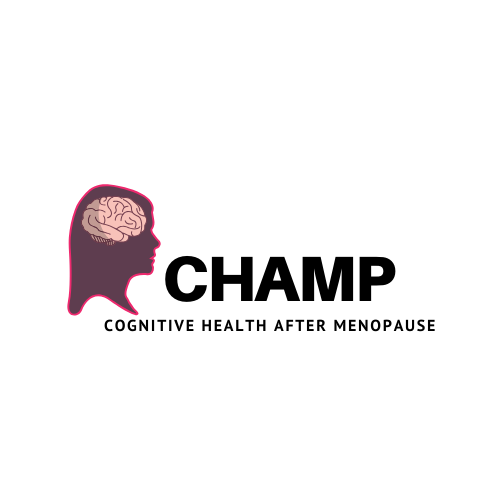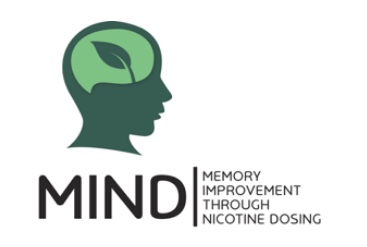TRC-DS Trial-Ready Cohort – Down Syndrome
Older adults with Down Syndrome (DS) are at high risk for developing Alzheimer’s Disease (AD). The goal of the Trial-Ready Cohort - Down syndrome (TRC-DS) is to identify individuals over 25 with DS, obtain information about how they are functioning, and evaluate their brain activity and structure. This will identify individuals with DS who may be eligible for a future medication study with the goal of reducing their risk for the development of Alzheimer’s disease. Individuals eligible to join this research study are adults with Down syndrome (DS) 25-55 years old or older and if female, not pregnant.
ADEPT-4 is a 14-week clinical study that will evaluate the safety and efficacy of KarXT, an oral medication, for the treatment of psychosis associated with Alzheimer’s disease. The purpose of this study is to evaluate if the study drug, KarXT, may help in the treatment of psychosis in people with Alzheimer’s disease compared to placebo (a substance that looks like KarXT but does not contain
any active drug).
To learn more about this study, contact Blake Wilson at (615) 936-4997 or blake.wilson@vumc.org.
ONO 2020-A Study of ONO-2020 in Participants With Mild to Moderate Alzheimer's Disease
This is a Phase 2, double-blind, parallel-group, placebo-controlled study to assess safety, tolerability, pharmacokinetics and efficacy of ONO-2020 in participants with mild to moderate Alzheimer's disease (AD). This study aims to determine whether administering ONO-2020, an epigenetic regulator, may improve cognitive functions like memory and cognition in individuals with Alzheimer's disease dementia.
AHEAD 3-45 - Think AHEAD of Alzheimer’s Disease 
The purpose of the AHEAD Study is to test whether an investigational treatment (sometimes referred to as “study drug”) can slow the earliest brain changes associated with Alzheimer’s disease and help to prevent the associated memory loss.
The AHEAD Study consists of two clinical trials: the AHEAD-3 trial (or A-3) and the AHEAD-45 trial (or A-45). Both trials enroll healthy adults (55-80 years of age) who are thought to be at increased risk for brain changes and memory loss associated with Alzheimer’s disease (AD).
CHAMP - Health of the Cholinergic System and Risk for Alzheimer’s Disease in Postmenopausal Women
We would like you to help us learn more about women’s risk factors for AD by inviting you to join our Cognitive Health After Menopause (CHAMP) study. The purpose of the CHAMP study is to learn more about women’s risk factors for developing memory-related disorders such as Alzheimer’s Disease.
MIND - Treatment Study for MCI (Mild Cognitive Impairment )
MIND is a two-year clinical study testing whether the safe use of nicotine, delivered via a patch, can improve memory and functioning in people who have been diagnosed with mild memory loss or mild cognitive impairment (MCI). Participants must be healthy, non-smoking adults over the age of 55. Volunteers do not have to be previously diagnosed with MCI. Memory testing will be done at the screening visit to determine eligibility.
ADNI 3 - The Alzheimer's Disease Neuroimaging Initiative study The ADNI study is an observational research study designed to look at the relationship between clinical, cognitive, imaging, genetic and biomarker tests to understand the full spectrum of Alzheimer’s disease (AD) from its earliest stages. The data from this research study will be used in the development of future research studies that will focus on the treatment of AD. The ADNI study is seeking people over age 55, who are healthy, as well as those with mild memory problems and those who have been diagnosed with mild dementia due to Alzheimer’s.
The ADNI study is an observational research study designed to look at the relationship between clinical, cognitive, imaging, genetic and biomarker tests to understand the full spectrum of Alzheimer’s disease (AD) from its earliest stages. The data from this research study will be used in the development of future research studies that will focus on the treatment of AD. The ADNI study is seeking people over age 55, who are healthy, as well as those with mild memory problems and those who have been diagnosed with mild dementia due to Alzheimer’s.
This is a free study, and no medication will be involved.
This study is designed to test whether changes in brain systems affect cognitive performance in people that notice memory changes and people that do not. Also, we are interested in looking at the structures and function of the brain utilizing MRI/fMRI and memory performance in everyday life outside of the laboratory. If you are an adult above the age of 60 without memory concerns, you may be eligible to participate in a new research study on aging and cognition.
This 3-visit study will include 1 structural and functional Magnetic Resonance Imaging (MRI/ fMRI) session, cognitive testing, and at-home smartphone assessments.
The REMBRANDT study is examining why people experience a return of depression after successful treatment. We hope to determine what factors predict future depressive episodes or may be warning signs of the return of depression. This is a two year study enrolling participants age 60 or older who are currently depressed, who have recently experienced remission from depression, and who have no lifetime history of depression.
Depressed MIND 2 - Depressed Mood Improvement Through Nicotine Dosing 2
The purpose of the Depressed Mind 2 study is to better understand whether a study medication can improve depression and memory performance in older individuals with depression. We also want to determine how the study medication affects brain function in order to cause these changes. We are enrolling participants age 60 or older who are currently experiencing symptoms of depression and are already taking a medication to treat depression.
D3 - Dopaminergic Dysfunction in Late-Life Depression
The purpose of the D3 study is to help treat older adults who feel slowed down in their thinking and actions. Slowing down, lack of interest and motivation, fatigue and trouble concentrating are all symptoms of depression. We believe these difficult symptoms are related to the brain's dopamine system. Dopamine is a chemical messenger released by nerve cells. Some medicines used to treat depression affect dopamine. The D3 study will help us examine better treatment targets.
This study is enrolling participants age 60 or older who are currently depressed and feel like they may be moving or thinking more slowly than they used to. We are also enrolling participants who have no history of depression or other mental illness. For depressed participants, the study includes treatment with FDA-approved medications that can improve slowing.
COMET Study - Computerized Memory Enhancing Treatment in MCI
The purpose of the study is to test how well adults with memory problems are able to complete a computerized program designed to improve certain types of "thinking" skills that are important for daily life functioning. This intervention has been shown to improve both cognitive skills and mood in older adults with depression, and our hope is that it will have similar positive effects in those with older adults with memory issues or MCI.
Neuroplasticity-Based Cognitive Remediation for Chemotherapy Related Cognitive Impairment Randomized Study
Studies have suggested that chemotherapy treatment for cancer may change the way the brain functions. As a result, patients who receive chemotherapy for cancer may experience problems with their attention, learning, and memory that they did not have before receiving chemotherapy. The purpose of this study is to test how well adults with Chemotherapy Related Cognitive Impairment (CRCI) are able to complete a computerized program designed to improve certain types of “thinking” skills that are important for daily life functioning. This intervention has been shown to improve both cognitive skills and mood in older adults with depression, and our hope is that it will have similar positive effects in those with CRCI.
A randomised double-blind placebo-controlled clinical trial investigating the effect and safety of oral semaglutide in subjects with early Alzheimer's disease (EVOKE)
Dementia is a rapidly growing public health concern causing a significant global socioeconomic impact. Clinically, the continuum of disease progression from mild cognitive impairment (MCI) to mild, moderate and severe dementia is accompanied by gradual loss of cognitive function and increasing difficulties in performing activities of daily living. Therefore, therapeutic interventions targeting the early stages of cognitive impairment could have substantial clinical and economic consequences for patients, their caregivers and society. Currently there are no treatments available for the treatment of MCI and only symptomatic treatments are available for dementia of the Alzheimer’s type.
This study confirm the superiority of oral semaglutide versus placebo on the change in cognition and function in subjects with MCI or mild dementia, both of the Alzheimer’s type. This study is looking for
- Male or female, aged 55-85 years (both inclusive) at the time of signing informed consent.
- MCI or mild dementia of the Alzheimer’s type according to the NIA-AA 2018 criteria


